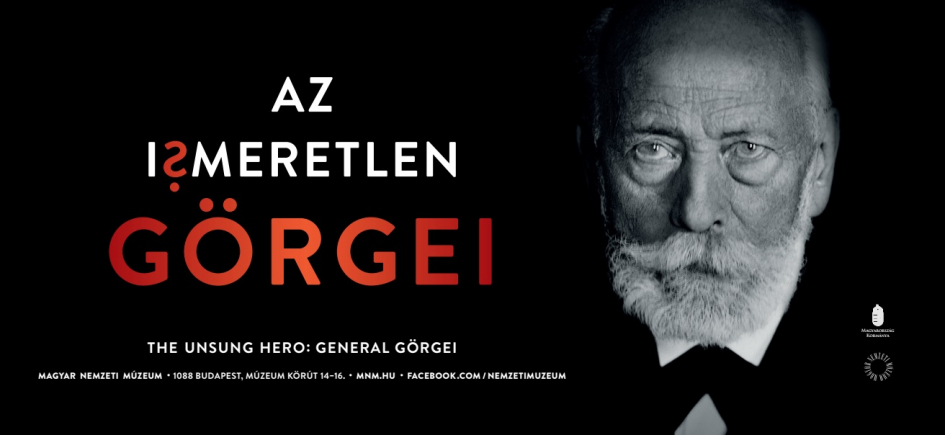
Artúr Görgei, born 200 years ago, is remembered above all for the surrender that closed the Revolution and War of Independence of 1848–1849. He was the military commander invested with dictatorial powers who, instead of entering into battle with the army of Tsar Nicholas I, ordered his army to lay down their arms.
Shortly after that in September 1849 Lajos Kossuth, the political leader of the War of Independence and the apostle of Hungarian freedom, in a letter written in Vidin, in the territory of the Ottoman Empire, branded the thirtyone-year-old general a traitor and executioner and assigned him sole responsibility for the failure of the War of Independence. His accusation still echoes today in Hungarian political memory.
The Russian military leadership handed over the disarmed army to the Austrians, who embarked on a series of bloody reprisals. The thirteen leaders of the Honvéd army and former prime minister Lajos Batthyány were executed on 6 October 1849. The Austrian commander, Julius Haynau, was determined to physically eliminate the political and military leaders. Whoever did not flee abroad awaited the death sentence or imprisonment, and Honvéd soldiers were drafted into the ranks of the Austrian army and sent to Italy. Emperor Franz Joseph I – who was not recognised as sovereign by Hungary – demanded of the Istanbul government that it extradite the fugitives. Although Abdul Mejid I refused this and protected the refugees, Kossuth was unable to return to his homeland until his death, and at the end of his life was even deprived of Hungarian citizenship. The Tsar spoke up on behalf of Görgei, so he was not harmed. However, he was interned in Klagenfurt, from where he was released under amnesty eighteen years later but his career was over and was not allowed to assume signifcant duties any more.
Was he a traitor? Did he ally himself with the enemy? Did he let the cause of Hungarian freedom fall through his own self-interest? Why did Görgei fght at all, and why were the soldiers of the 1848–1849 War of Independence fghting?
In the frst half of the 19th century, the formally independent Hungarian state faced serious problems. Although it was legally autonomous, part of it was incorporated into the Habsburg Empire in the mid-16th century, and the rest of it after the expulsion of the Ottomans. Its throne was occupied by the Habsburgs, who are remembered throughout Europe not as the successors of St Stephen, founder of the state of Hungary, but as leaders of the Holy Roman Empire and, after 1804, of the Austrian Empire. For the foreign-born Habsburg kings of Hungary, sitting in Vienna, Hungary was only one of the lands of their empire, a land won by force of arms, which was to be grateful for the military support that expelled the Ottomans. The sovereign subordinated the country to the interests of the Habsburg Empire. Hungary was condemned economically to be a market that served the Austrian Hereditary Lands. General dissatisfaction prompted the liberal section of the nobility to launch a reform movement, pressing for the economic, political and social modernisation.
The Hungarian opposition was the frst movement in the Empire to react to the wave of revolutions that swept Europe in 1848. Lajos Kossuth, the leading fgure of the liberal nobility, demanded immediate and full liberal transformation and the constitutional reform of the entire Habsburg Empire, as did the revolutionary youth of Pest. The bloodless Pest Revolution won complete victory on 15 March 1848. An independent government was formed, accountable to parliament, and the King assented to the laws passed by parliament in April. Freedom of the peasants from feudal bondage, universal taxation and equality before the law ushered in constitutional government in Hungary.
By the end of August, however, the Vienna court with its absolutist intentions forced the country into a defensive war. The invasion of the imperial forces in September 1848 set off the War of Independence, which was to last for nearly a year. It was in this conflict that Artúr Görgei rose among his peers.







